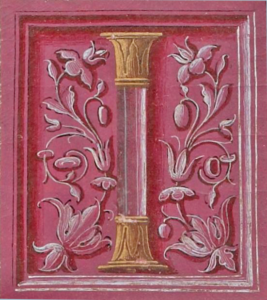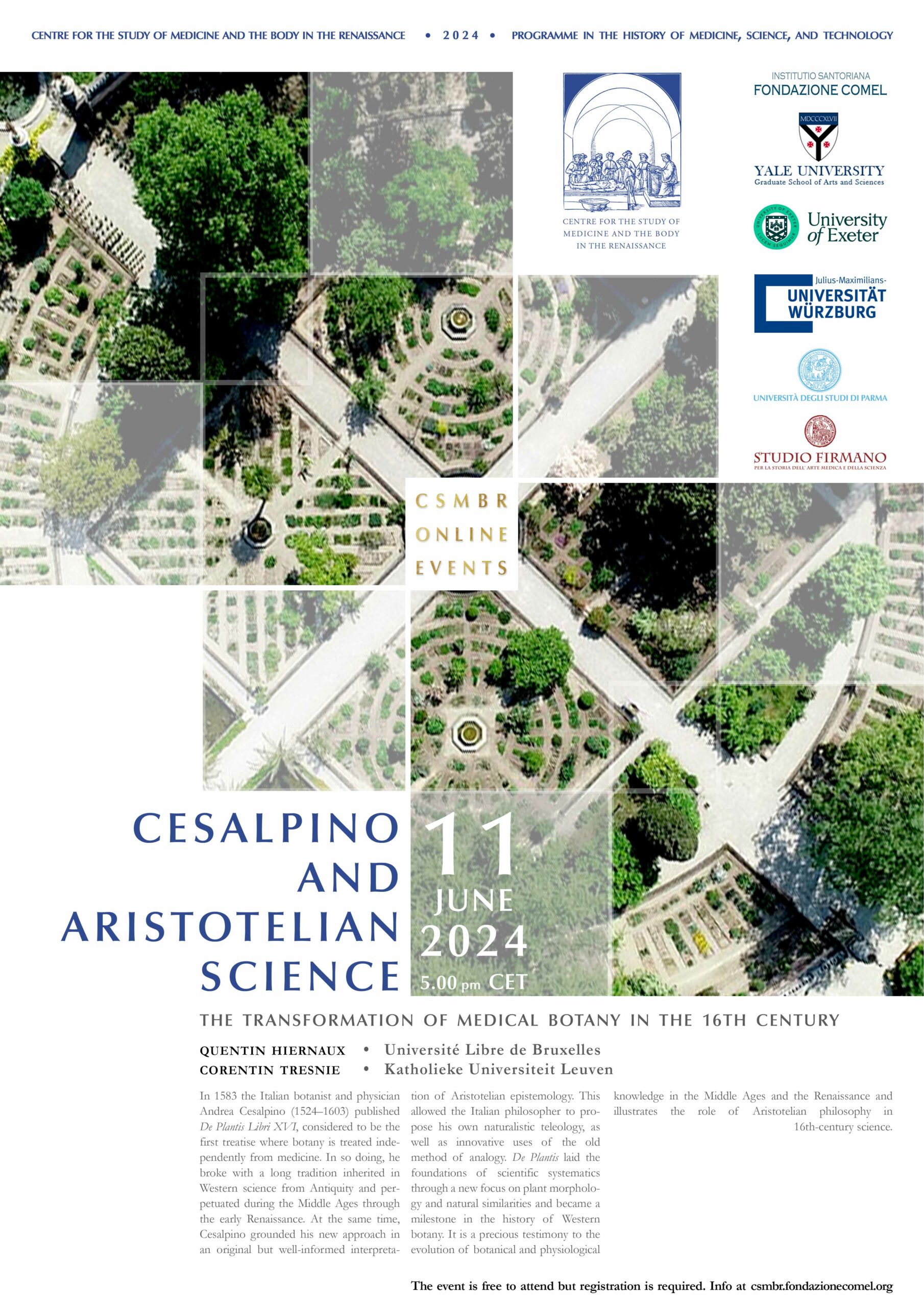Cesalpino and Aristotelian Science


Cesalpino
and Aristotelian Science
The Transformation of Medical Botany in the 16th Century
Quentin Hiernaux
Corentin Tresnie
11 June 2024 – 5 PM (CEST)
In 1583 the Italian botanist and physician Andrea Cesalpino (1524–1603) published De Plantis Libri XVI, considered to be the first treatise where botany is treated independently from medicine. In so doing, he broke with a long tradition inherited in Western science from Antiquity and perpetuated during the Middle Ages through the early Renaissance.
At the same time, Cesalpino grounded his new approach in an original but well-informed interpretation of Aristotelian epistemology. This allowed the Italian philosopher to propose his own naturalistic teleology, as well as innovative uses of the old method of analogy.
De Plantis laid the foundations of scientific systematics through a new focus on plant morphology and natural similarities and became a milestone in the history of Western botany.
It is a precious testimony to the evolution of botanical and physiological knowledge in the Middle Ages and the Renaissance and illustrates the role of Aristotelian philosophy in 16th-century science.
About the Speakers ...
Quentin Hiernaux is a Research Associate at the Fund for Scientific Research (FNRS) and Professor of Philosophy of Science at the Université libre de Bruxelles. He is also an Honorary Research Associate at Meise Botanic Garden. His research focuses on the history and philosophy of life sciences, with an emphasis on plant sciences (history of botany, philosophy of biology, philosophy of ecology). His work focuses on the problem of biological individuality, on the status of plants in history of philosophy and in environmental ethics.
Corentin Tresnie is Assistant Professor at the Université de Liège, where he teaches philosophy of education. He previously worked on Late Ancient Platonism, especially on Plotinus and Proclus. His research focuses on the models of education and learning that were built in the history of philosophy, with a current emphasis on metaphors and analogies







